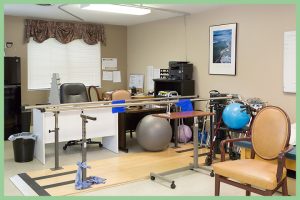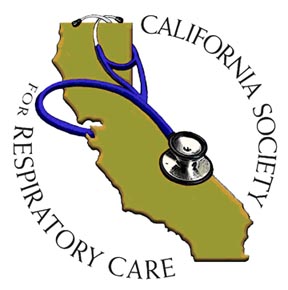Cedar Park family medicine physician Melissa J. Urrea, M.D. believes taking care of your health shouldn’t be a difficult financial decision. And while the recently-signed Health Care Bill mandates that all individuals will be required to obtain health insurance by 2014, that still leaves several years of challenging options on how to best obtain quality medical care. That’s why she recently introduced through her practice, Trinity Family Medicine, a pre-paid package of medical services. Trinity HealthSpan â„¢ provides access to comprehensive health care to uninsured and underinsured individuals and families.
Nearly one in four Central Texas residents currently lives with inadequate or no health insurance — and that statistic is expected to rise as a result of the recession. Dr. Urrea’s plan helps to bridge the gap between the need for and access to quality health care services.
For an annual fee of less than $800, Trinity HealthSpan â„¢ provides:
- An annual examination (including prostate screening)
- Lab work (including a complete metabolic panel, diabetes screening, kidney and liver function screening, electrolyte evaluation, complete blood count, anemia evaluation, thyroid function evaluation, cholesterol and lipid panel, urinalysis, urine protein evaluation)
- Electrocardiogram (EKG)
- Tetanus vaccination
- Influenza vaccination
- Three routine office visits (including follow up for a particular disease/condition and sick visits)
- Access to coordinated services (such as labs) at reduced rates
The concept for Trinity HealthSpan â„¢ originated when Dr. Urrea was challenged with managing the care of chronically ill individuals who had no or limited insurance or were self-employed. “For someone with a condition like diabetes, allergies or asthma, it is imperative to focus not only on disease management, but overall wellness,†said Dr. Urrea. “That involves multiple visits to a physician, along with moderate diagnostic testing to monitor the condition.â€
As the recession affected more and more of her patients, Dr. Urrea consulted with her practice’s business manager to determine how they could assist their patients in maintaining regular access to care. The practice reached out to ancillary service providers like laboratories and negotiated reduced rates on behalf of patients who purchase the Trinity HealthSpan â„¢ package. Trinity HealthSpan â„¢ also connects patients with pharmacies offering low-cost, generic prescription plans. Local retailers like HEB and Target offer plans that provide medications for as little as $5 a month, which is actually less money than most insurance plan co-pays.
For an uninsured individual not participating in Trinity HealthSpan ™ , the cost of the pre-paid package of services would be $1,050. Similarly, if an insured patient paid an average of $400 per month (not including deductibles and co-pays) in insurance premiums, they could save more than $4,000 annually by enrolling in Trinity HealthSpan ™ . “Even if the patient needed X-rays or an MRI, it would still be less expensive than through their insurance plan,†said Dr. Urrea.
 “As a physician and patient, I wanted to bring peace of mind to those individuals and families who can’t afford insurance but deserve state-of-the-art medical services,†added Dr. Urrea. Patients may also purchase “a la carte†customized care packages with fewer services or those related to a specific health condition. Plan financing options are also available.
“As a physician and patient, I wanted to bring peace of mind to those individuals and families who can’t afford insurance but deserve state-of-the-art medical services,†added Dr. Urrea. Patients may also purchase “a la carte†customized care packages with fewer services or those related to a specific health condition. Plan financing options are also available.
Trinity Family Medicine provides care for the entire family, including pediatrics, women’s health, men’s health, general medicine, herbal medicine, sleep studies, and cosmetic medicine. House calls are also an option for established patients depending on location.
Dr. Urrea is a graduate of the University of Texas Medical Branch at Galveston (UTMB). She is board-certified by the American Board of Family Medicine, a member of the American Academy of Family Physicians, and serves as an associate clinical professor in the Department of Family Medicine at the University of Texas Medical Branch at Galveston.
For more information or to sign up for Trinity HealthSpan ™, call Trinity Family Medicine at 512-258-1645 or visit www.urreamd.com.
Via EPR Network
More Healthcare press releases

 The renovations to the facility include our updated rehab unit, including a new rehab gym. The rehab unit has 8 private suites. The lobby was completely embellished including new furniture in the lobby and throughout the entire community. Cedarview HealthCare Center is an 83-bed skilled nursing home that caters to the residents of Lebanon.
The renovations to the facility include our updated rehab unit, including a new rehab gym. The rehab unit has 8 private suites. The lobby was completely embellished including new furniture in the lobby and throughout the entire community. Cedarview HealthCare Center is an 83-bed skilled nursing home that caters to the residents of Lebanon. Cedarview Healthcare Center is a skilled nursing community, located in Lebanon, Ohio, that offers a living alternative for those who need more support than they would receive in their home. The community offers a wide array of health rehabilitation, dietary, and social services for both short term rehabilitation and long-term stays.
Cedarview Healthcare Center is a skilled nursing community, located in Lebanon, Ohio, that offers a living alternative for those who need more support than they would receive in their home. The community offers a wide array of health rehabilitation, dietary, and social services for both short term rehabilitation and long-term stays.




